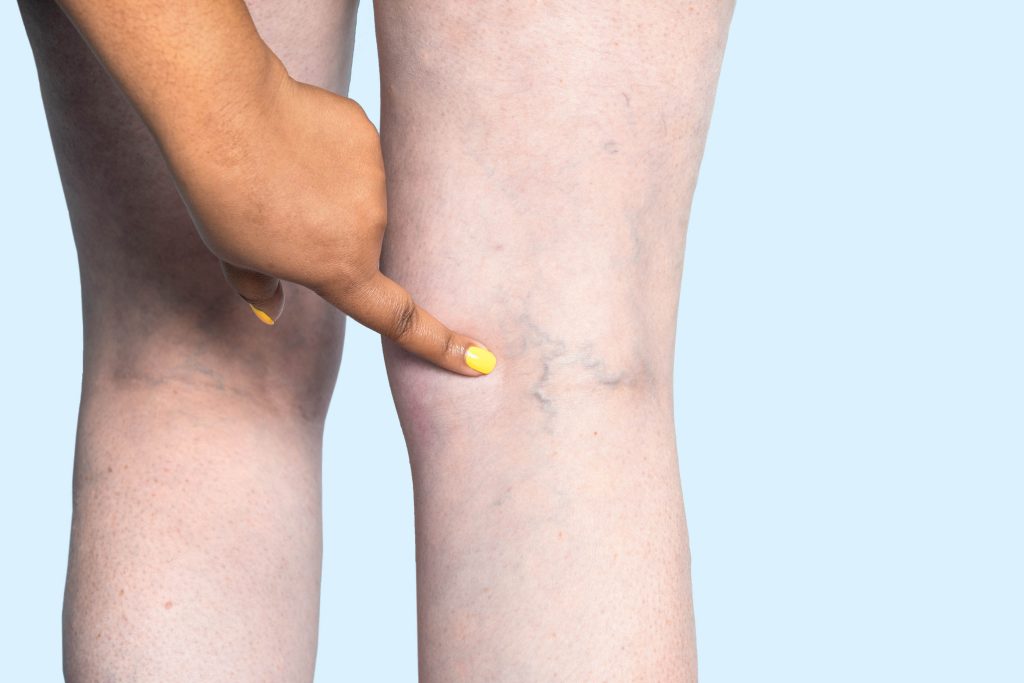- Venous insufficiency is a serious condition requiring active management participation, including lifestyle changes, medication, minimally invasive treatments, regular check-ups, and developing a strong support network.
- Regular exercise, maintaining a balanced diet, and avoiding prolonged periods of sitting or standing are key lifestyle modifications for managing venous insufficiency.
- Consultation with healthcare professionals is pivotal for accurate diagnosis, effective treatment, and ongoing monitoring of venous insufficiency.
- When managing venous insufficiency, building a strong support network, including family, friends, support groups, and healthcare professionals, is crucial for emotional support and overall well-being.
If you’re experiencing venous insufficiency, there are several key factors you need to consider. This condition, marked by improper functioning of the vein valves in your legs, can lead to a range of symptoms, from discomfort to severe health complications.
It’s critically important to seek professional medical advice, take prescribed treatments seriously, and incorporate lifestyle modifications such as regular exercise, a balanced diet, and avoiding long periods of standing or sitting. Remember, your active participation in managing your health is crucial.
Lifestyle Modifications
Incorporating lifestyle modifications is integral to managing venous insufficiency. Regular exercise, for instance, boosts circulation and strengthens your veins, alleviating symptoms. This doesn’t mean you need to run a marathon – lower-impact activities like swimming or walking can be just as effective. Maintaining a balanced diet, rich in fiber and low in salt, is equally crucial to prevent unnecessary pressure on your veins due to weight gain.
Also, try to avoid sitting or standing for prolonged periods – if your job involves long hours at a desk or on your feet, take short breaks to move around or elevate your legs. Quitting smoking is also highly recommended, as it can further impair blood circulation. Remembering these changes help manage venous insufficiency and contribute to overall cardiovascular health is important.
Consultation
Consultation with healthcare professionals is pivotal in understanding and managing venous insufficiency effectively. Here are some things to consider:
Diagnosis

Accurate diagnosis of venous insufficiency is crucial to ensure effective treatment and management of symptoms. The process typically starts with a thorough medical history review, where your healthcare provider will ask about your symptoms and any related conditions you might have. This is followed by a physical examination where your physician may look for signs such as varicose veins, swelling, or skin discoloration.
Diagnostic tests like a Duplex ultrasound, which uses sound waves to evaluate the speed and direction of blood flow in the veins, may also be performed. This non-invasive test can help identify the affected veins and the severity of the condition. It’s crucial to discuss any concerns or queries you have with your healthcare provider during this process. Remember, open communication is key to effective healthcare delivery.
Medication
Pharmacological intervention can play a vital role in managing venous insufficiency. Some commonly prescribed medications include diuretics to reduce swelling, anticoagulants to prevent blood clots, and venotonics to improve vein health. Over-the-counter options such as compression stockings can also be beneficial. They apply gentle pressure to your legs, promoting blood flow and reducing swelling.
However, it’s paramount to remember that each individual’s condition is unique, and what works best for one person may not be the most effective for another. Hence, following your healthcare provider’s instructions and promptly communicating any side effects or lack of improvement is crucial. The ultimate goal of medication in venous insufficiency is not just symptom management, but also slowing the progression of the disease and preventing complications.
Minimally Invasive Treatments
Minimally invasive treatments have emerged as an effective alternative to traditional surgery in managing venous insufficiency. These procedures often require only local anesthesia and result in shorter recovery times. A prominent example is the VenaSeal Closure Procedure, a novel therapy approved by the FDA.
It involves using a special adhesive to close the affected veins, thereby rerouting blood flow to healthy veins. The procedure is typically performed in an outpatient setting and patients can usually return to normal activities right after, with minimal discomfort. Its efficacy and safety have been demonstrated in several clinical studies, making it a viable option for many suffering from venous insufficiency.
Follow-up Appointments

Regular follow-up appointments are critical in managing venous insufficiency. These check-ups allow your healthcare provider to monitor your progress, adjust treatments as necessary, and detect potential complications early. It’s also an opportunity to discuss new symptoms, concerns, or questions.
Depending on your condition, follow-ups can vary from monthly to yearly. Staying committed to these appointments is as important as adhering to your treatment plan; they contribute to effectively managing your condition.
Remember, your active participation is key to your healthcare journey. Regardless of how well you feel, it’s critical not to skip these check-ups. Consistency in follow-ups is invaluable in achieving optimal health outcomes.
Support Network
Building a strong support network is essential in managing chronic health conditions, including venous insufficiency. Always remember, you don’t have to face this challenge alone. Contact family and friends who can lend a listening ear, accompany you to medical appointments, or assist with day-to-day tasks.
Look for local or online support groups where you can share experiences, learn from others going through the same journey, and gain emotional support. Healthcare professionals like nurses or social workers can also provide valuable advice and resources. Lastly, consider counseling or therapy if you’re feeling overwhelmed or distressed.
Maintaining your mental health is just as important as managing your physical symptoms. In this journey, the strength of your support network plays a crucial role in your overall well-being and health outcomes.
In conclusion, actively managing venous insufficiency requires a comprehensive approach, involving lifestyle changes, consultation, medication, treatments, consistent follow-ups, and a strong support network. Remember, it’s paramount to be proactive about your health. So, take that first step and consult with a healthcare professional today.